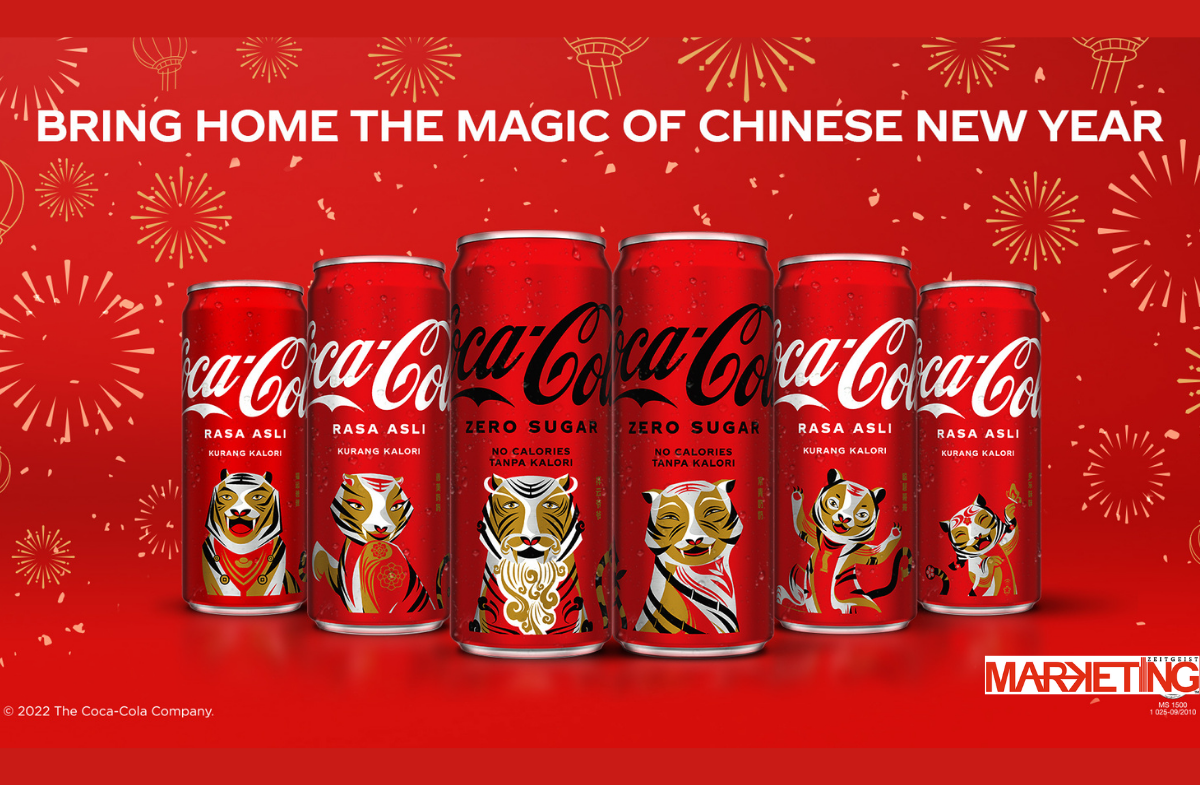THE POWER OF INCLUSIVE MARKETING
How customers want brands to celebrate Lunar New Year.
How do brands avoid cultural appropriation when celebrating Lunar New Year? We spoke to consumers to understand their attitudes towards the holiday, how it’s celebrated in the US and how they are marketed to.
by Hui Hsin Chang, UX Researcher, and Keyona Osborne, Head of DEI ThinkTank
When is it acceptable for brands to sterilize cultural celebrations to ensure mass market reach? Never. Yet still, more US consumers are familiar with the holiday “Chinese New Year” than they are with “Lunar New Year.” The true meaning of many cultural celebrations and observances in the US has been erased and replaced with a version that produces more profit for the companies currently marketing them. US consumers have decided they are not tolerating this much longer.
To help you navigate the expectations of US consumers, we’ve committed to exploring cultural celebrations and sharing our recommendation for your brand. So far, we’ve explored ways to build genuine relationships with all consumers during celebrations like MLK Day and Black History Month, while still being mindful of profit. Today we explore Lunar New Year, a public holiday in China, North and South Korea, Malaysia, the Philippines, Indonesia, Singapore, Brunei, and Vietnam, and observed across the globe by those with and without cultural ties to these countries.
What does Lunar New Year mean to consumers?
We spoke to 150+ consumers across the US during Lunar New Year 2023 to understand their feelings and attitudes towards the holiday, how it’s celebrated in the US and how they are marketed to.
Lunar New Year is the beginning of the new year based on the lunar calendar. It begins with the first new moon and is celebrated until the next full moon. People celebrate in many ways, often beginning with a festival. Generally, Lunar New Year is a time spent with family, including ancestors, and is focused on welcoming good fortune for the year.
While the holiday has its roots in Asian countries, in the US, people of all ethnic backgrounds celebrate the holiday. In our 2023 research, people identifying as Black, White, Hispanic, Asian and American Indian all celebrated. Despite that, brands generally do not celebrate.
To sum up what we heard, our advice is this: If your brand is already celebrating Lunar New Year, consider ways to be more authentic in your representation of the holiday and to connect with your consumers more relationally. If your brand is not celebrating Lunar New Year, consider doing so, but in a way that uplifts the cultures where the holiday originated. Or traditions that involves honoring ancestors and the deceased. Practices includes offering food, burning incense in return for good fortune. These rituals are meant to express gratitude, get blessings and maintain the connection with our ancestors.

If your brand reaches consumers of all backgrounds, then your brand should be celebrating holidays and traditions representative of all backgrounds.
Focus on connecting with your consumer through cultural accuracy.
Lunar New Year is a season that encompasses celebrations such as Chinese New Year, Seollal (Korea), Losar (Tibetan), Tet (Vietnamese), and Tsagaan Sar (Mongolian). Japanese New Year (Shogatsu) celebrates the Western calendar’s New Year but does so in a similar way to how Lunar New Year is celebrated. Those who celebrate want to see more than Chinese people in your advertisements, and they especially want you to stop calling it Chinese New Year.
CUSTOMER QUOTE
“I would remove Chinese New Year 100 percent and use Lunar New Year instead, many Vietnamese, Japanese, Chinese, and other Asian ethnicities like Korean also celebrate Lunar New Year. It’s not just Chinese .”
Among those who celebrate, more than half do so by cleaning their home (symbolic of driving away bad luck) and eating traditional Lunar New Year dishes. Consider focusing your marketing messages on how your consumers are celebrating, rather than highlighting stereotypes. Messages about good health and luck resonate most with consumers who celebrate, while mentions/imagery of fortune cookies and zodiac animals resonate less. Focus on connecting with your consumer rather than being abstract in an attempt to reach more. C Space’s Diversity, Equity & Inclusion (DEI) ThinkTank is available to partner with you on this.
Ready to make your marketing more inclusive?
DEI is not one-size-fits-all – that’s why we’ve designed a solution to start with you and your team and build from there. Find out how C Space’s DEI ThinkTank can transform you business.
Consumers don’t just want to see themselves reflected in marketing.
Only 27% of consumers recalled seeing a Lunar New Year advertisement at the time this survey was fielded, which was during the week of Lunar New Year celebrations in 2023. Of those who had seen an advertisement, no brand was named by more than two consumers. This is an opportunity for your brand to demonstrate its authentic commitment to DEI.
While two in every 10 consumers are unfamiliar with Lunar New Year, another two in 10 celebrate every year, and another one in 10 is celebrating for the first time. This means your brand can connect with consumers celebrating and also educate those who are not. We increasingly hear from consumers that they not only want to see themselves in a brand’s marketing, but they want to see diversity. Consumers want to know that you care about their neighbors, friends, colleagues, family, and community members. It is a powerful acknowledgement that our differences enrich the tapestry of our shared humanity.
The opportunity to reach more consumers awaits.
Coca Cola, Pepsi and Panda Express were each named by 7% of consumers we spoke to as brands expected to celebrate Lunar New Year. When shown a list of popular brands, more than half expect Google to celebrate, nearly half expect Amazon to celebrate and almost one in three expect Target and McDonald’s to celebrate.
This tells us that if your brand reaches consumers of all backgrounds, then your brand should be celebrating holidays and traditions representative of all backgrounds. Even consumers who do not celebrate Lunar New Year shared an expectation that it be celebrated by brands with a diverse reach.
When asked to evaluate a 2022 ad from Coca Cola, consumers say the brand got the colors, symbolism and imagery right. It’s important that the animal of the new zodiac year be mentioned and/or depicted, and the color red is a must, even if it’s not a part of your brand’s color palette. Additional recommendations include using Asian calligraphy and mentioning good health and good luck.

But we don’t recommend slapping our recommended approach onto a branded marketing template and assuming it will win you more customers or loyalty. As we learned from MLK Day and Black History Month celebrations, consumers want to feel valued year-round and know when they are being pandered to.
If you don’t currently celebrate Lunar New Year in your marketing or merchandising, be sure to find additional ways throughout the year to connect with consumers who have a cultural connection to this holiday.
It’s time to transform your business.
Best practices dictate that all corporate initiatives should bring a DEI lens, so your insights are future-proof. Our DEI ThinkTank has helped some of the world’s most well-known B2B and B2C brands with their DEI initiatives. Let us do the same for you.
About C Space’s DEI ThinkTank.
We’re a cross-functional team bringing together real-time learning from clients, third-party experts and our proprietary research. Our goal is to accelerate our collective learning at C Space to transform our business, mobilize our clients and change the industry.
Read more about the work we do here.
Thank you for reading the third in a series of articles on inclusive marketing. Check out our previous articles
on
MLK Day and
Black History Month and watch this space for two more deep dives into cultural celebrations and observances in the US, and practical advice on how brands can participate in inclusive and authentic ways.
Contributors: Cassie Dutton, Senior Consultant & DEI ThinkTank Research Advisor, and Lynda Ploeun, Safety & Compliance Director, C Space


